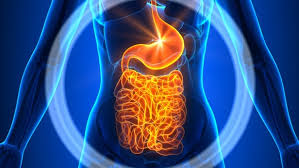
Breaking News
 Rand Paul just revealed he's working with RFK Jr. to prosecute Fauci. But Trump's DOJ is ign
Rand Paul just revealed he's working with RFK Jr. to prosecute Fauci. But Trump's DOJ is ign
 BREAKING EXCLUSIVE: "I Think Bill Gates Is The Boss," Epstein Survivor Claims Gates Was...
BREAKING EXCLUSIVE: "I Think Bill Gates Is The Boss," Epstein Survivor Claims Gates Was...
 Musk Offers Free Starlink As Iran Protests Endure Internet, Comms Blackout
Musk Offers Free Starlink As Iran Protests Endure Internet, Comms Blackout
 South Korea Seeks Death Penalty For Ex-President Yoon's Botched Martial Law Attempt
South Korea Seeks Death Penalty For Ex-President Yoon's Botched Martial Law Attempt
Top Tech News
 Superheat Unveils the H1: A Revolutionary Bitcoin-Mining Water Heater at CES 2026
Superheat Unveils the H1: A Revolutionary Bitcoin-Mining Water Heater at CES 2026
 World's most powerful hypergravity machine is 1,900X stronger than Earth
World's most powerful hypergravity machine is 1,900X stronger than Earth
 New battery idea gets lots of power out of unusual sulfur chemistry
New battery idea gets lots of power out of unusual sulfur chemistry
 Anti-Aging Drug Regrows Knee Cartilage in Major Breakthrough That Could End Knee Replacements
Anti-Aging Drug Regrows Knee Cartilage in Major Breakthrough That Could End Knee Replacements
 Scientists say recent advances in Quantum Entanglement...
Scientists say recent advances in Quantum Entanglement...
 Solid-State Batteries Are In 'Trailblazer' Mode. What's Holding Them Up?
Solid-State Batteries Are In 'Trailblazer' Mode. What's Holding Them Up?
 US Farmers Began Using Chemical Fertilizer After WW2. Comfrey Is a Natural Super Fertilizer
US Farmers Began Using Chemical Fertilizer After WW2. Comfrey Is a Natural Super Fertilizer
 Kawasaki's four-legged robot-horse vehicle is going into production
Kawasaki's four-legged robot-horse vehicle is going into production
 The First Production All-Solid-State Battery Is Here, And It Promises 5-Minute Charging
The First Production All-Solid-State Battery Is Here, And It Promises 5-Minute Charging
Fecal transplants result in massive long-term reduction in autism symptoms

Another example of this are the emerging ties between gut health and autism, with an exciting new study demonstrating how boosting microbial diversity via fecal transplants can dramatically reduce its symptoms in the long term.
One in every 59 children born in the US is diagnosed with autism, according to the Centers for Disease Control and Prevention, and unfortunately for many of them, chronic gastrointestinal issues are a harsh reality of their condition. According to scientists at Arizona State University (ASU), who conducted the new study, around 30 to 50 percent of autism sufferers experience serious gut problems like constipation, diarrhea and stomach pain.
"Many kids with autism have gastrointestinal problems, and some studies, including ours, have found that those children also have worse autism-related symptoms," says ASU's Rosa Krajmalnik-Brown,. "In many cases, when you are able to treat those gastrointestinal problems, their behavior improves."
The new study builds on earlier research from 2017 that found introducing new bacteria via fecal transplants in 18 autistic children brought about marked improvements in their behavior, as measured through questionnaires assessing their social skills, hyperactivity, communication and other factors.

 Storage doesn't get much cheaper than this
Storage doesn't get much cheaper than this

